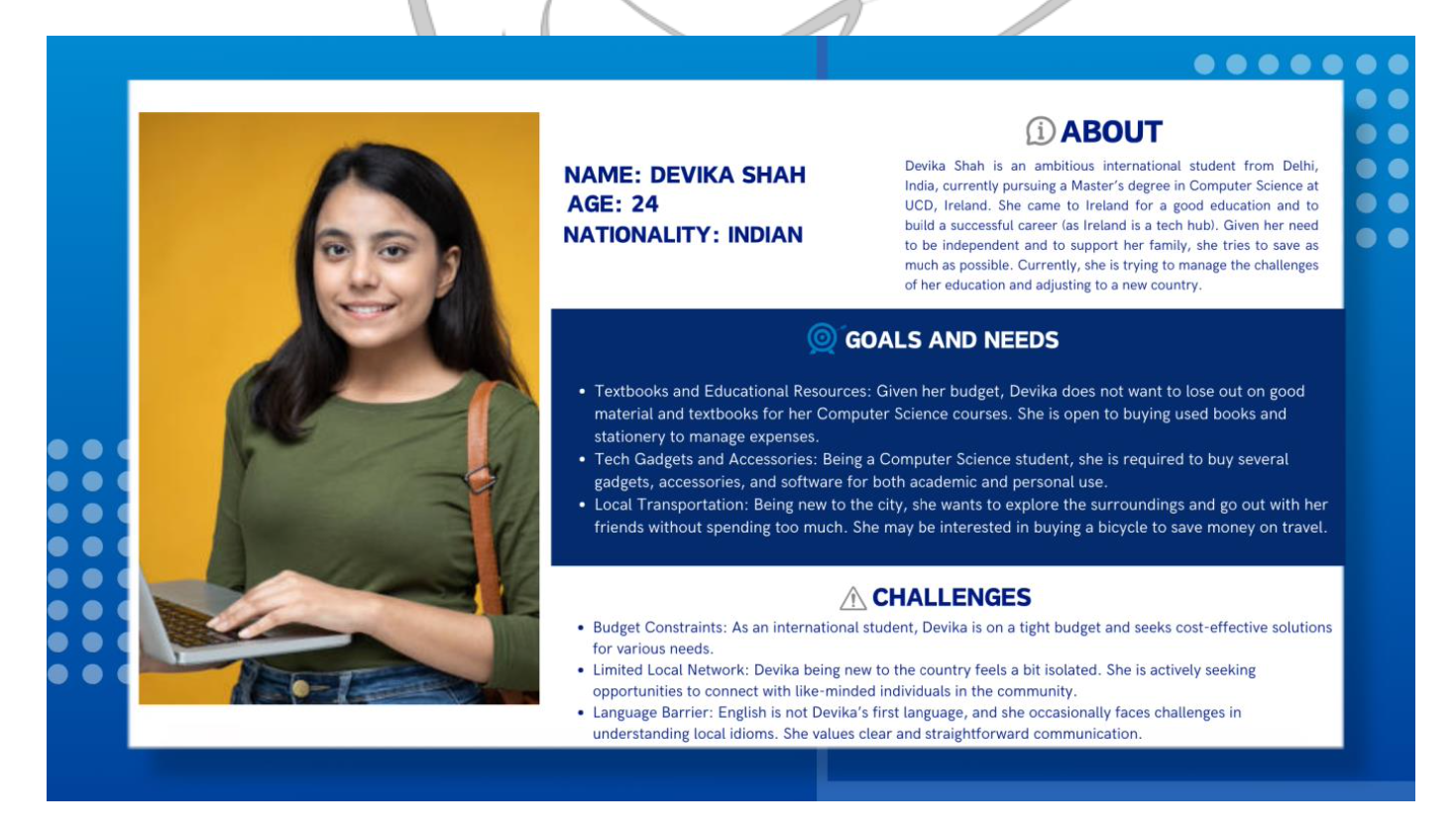FOND:
A Student Movement Towards Sustainable Living Through Sharing
Overview/Problem Statement
In today’s consumer-driven society, overconsumption and waste are rampant, but many students are searching for ways to live more sustainably. However, existing solutions like Facebook Marketplace and second-hand platforms often fall short when it comes to promoting sustainability and fostering community trust. FOND, a student-sharing platform, was designed to fill this gap by encouraging students to share goods in a way that aligns with UN Sustainable Development Goals (SDGs), while addressing key concerns like trust, hygiene, and privacy.
My team’s challenge was creating a platform that was both intuitive and engaging, while simultaneously tackling the complex social issues of waste reduction and sustainability. As a researcher and strategist on the team, my goal was to ensure that the platform effectively supported the needs of students while also promoting the environmental mission of FOND.
Impact & Recommendations
-

We implemented a university email verification system to create a trusted community of students. This ensured that users were not dealing with anonymous or unverified individuals, creating a safer platform for transactions.
Building trust in online sharing is paramount. Students needed assurance that they were engaging with peers in a secure environment, especially when exchanging personal items.
-

The introduction of item condition classifications and searchable filters significantly improved usability. Users were able to quickly identify high-quality listings, improving both the efficiency and effectiveness of the platform.
These features addressed student concerns about item quality and hygiene, while making the platform easier to navigate, thus increasing the likelihood of sustained engagement.
-

I recommended adding discussion forums and sustainability tracking, allowing users to see their contribution to reducing waste over time.
These features fostered a sense of community and encouraged students to continue using the platform, contributing to long-term engagement and sustainability.
Research Process
To create a platform that not only functioned effectively but also aligned with student values and sustainable living goals, it was essential to employ a mixed-methods research approach that combined competitor analysis, user feedback, and iterative testing. This combination helped us understand the barriers to using sharing platforms and how FOND could position itself as a trustworthy, community-oriented alternative.
Question 1: How can we design a seamless sharing platform that promotes sustainability while ensuring user trust, data security, and long-term engagement?
Question 2: What features will foster community trust and encourage students to regularly engage with the platform to share, borrow, and trade items?
Methods Used
Competitor Analysis
We analyzed platforms like Facebook Marketplace, Olio, and CRNI to identify gaps, especially around trust, security, and engagement. These platforms had low barriers to entry, which raised concerns about item quality and transaction safety—issues we wanted to resolve with FOND.
Online Survey
Conducted an online survey with 40 university students to assess their attitudes towards sustainability, motivations for using sharing platforms, and barriers to entry. We explored whether concerns about hygiene or privacy would limit student engagement, and how we could design FOND to overcome those concerns.
Personas and Scenarios
Developed personas based on survey data to model student behavior. By simulating real-world interactions, we identified key pain points, such as distrust of item quality and difficulty navigating listings. This helped us focus on user-centered solutions that would make sharing easy and reliable.
User Testing
Led user testing with 9 participants to evaluate the platform’s usability. We focused on ensuring that the navigation was intuitive, while addressing trust-related concerns through features like university email verification and rating systems for sellers and borrowers.

Findings & Insights
-
Trust and Privacy Concerns: The survey revealed that while over 80% of students supported the concept of sustainable sharing, they had significant concerns about privacy, data security, and hygiene. These concerns posed potential barriers to engagement, especially for a platform focused on exchanging goods between strangers.
Trust is crucial for the success of a sharing platform, especially one targeting students who may be sharing personal items. We needed to address this head-on by incorporating transparent user verification systems and privacy measures to ensure student confidence in the platform.
-
Competitor Analysis Findings: Existing platforms like Olio and Facebook Marketplace lacked clear quality control measures and transaction security, which often led to inconsistent user experiences. Students reported issues such as unreliable listings, unverified users, and poor communication between parties.
For FOND to stand out, we needed to build features that emphasized trust, such as requiring university email verification to create a safe, exclusive environment, and implementing automated messaging and rating systems to ensure positive user experiences.
-
Adaptive Strategies for Engagement: User testing revealed that while filters and search options were well-received, students were concerned about the clarity of labels and readability of fonts. These seemingly small usability issues could have a major impact on student engagement.
To encourage sustainable habits, the platform needed to be easy to use and accessible. Addressing these minor usability concerns helped ensure that students could quickly find what they were looking for, making sustainable sharing more convenient and attractive.
Reflection & Lessons Learned
Designing FOND revealed that the success of a sustainability-driven platform relies on balancing usability with trust. While students were eager to adopt sustainable practices, they needed reassurance that the platform was safe, reliable, and easy to use.
This project taught me the importance of building features that prioritize transparency, trust, and user feedback, reinforcing the need to iteratively test and refine to meet user expectations and encourage long-term engagement. It also showed me the value of aligning technology with ethical design principles so that sustainable solutions are accessible and appealing.


